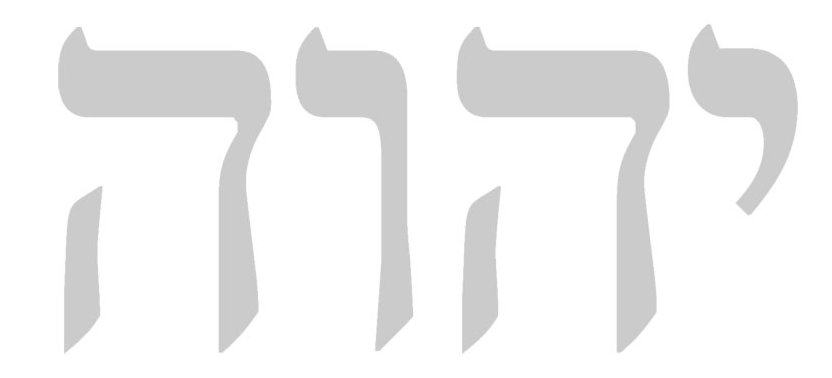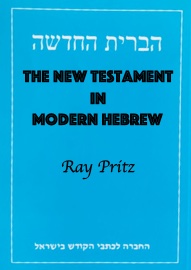How to cite this article: Ray Pritz, “The Divine Name in the Hebrew New Testament,” Jerusalem Perspective 31 (1991): 10-12 [https://www.jerusalemperspective.com/2566/].
God has a personal name: יהוה (YHVH). Like Semitic names in general, it was intended to reflect something of the bearer’s character. YHVH is related to the root הוה (h-v-h, “to be”), and reflects God’s eternity and timelessness.
The name of the God of Israel contained power and was used with reverence. The third commandment said it was not to be “taken in vain,” which meant that people were not to swear falsely by God’s name. However, this commandment came to be interpreted in its narrowest sense, and somewhere between the destruction of the First Temple in 586 B.C. and the third century A.D., people stopped using the name at all when speaking.
When the Hebrew Scriptures were translated into Greek in the third century B.C., the tetragrammaton was often substituted by the Greek word κύριος (kūrios), which means “Lord.” This causes a slight complication when we read, because there is already a word for “lord” in Hebrew, which is sometimes applied to God either in its singular form, אָדוֹן (’ā⋅DŌN), or as a plural with first person singular pronominal suffix, אֲדֹנָי (’ado⋅NĀI, “Lord”; literally, “my lords”).[1] Thus it is not always possible in the Septuagint to tell whether the original underlying Hebrew referring to God was the tetragrammaton, ’ado⋅NĀI, or some other word.
Paid Content
Premium Members and Friends of JP must be logged in to access this content: Login
If you do not have a paid subscription, please consider registering as a Premium Member starting at $10/month (paid monthly) or only $5/month (paid annually): Register
One Time Purchase Rather Than Membership
Rather than purchasing a membership subscription, you may purchase access to this single page for $1.99 USD. To purchase access we strongly encourage users to first register for a free account with JP (Register), which will make the process of accessing your purchase much simpler. Once you have registered you may login and purchase access to this page at this link:
To read the next article in the “New Testament in Modern Hebrew” series, click here.

- [1] The plural of אָדוֹן (’ā⋅DŌN) is אֲדֹנִים (’ado⋅NIM). The regular plural with first person singular pronominal suffix is אֲדֹנַי (’ado⋅NAI, “my lords”). In the Masoretic text, when God is intended and not “my lords,” the word is pointed אֲדֹנָי (one exception of 425 occurrences, אֲדֹנָי in Judges 13:8). ↩
































































































